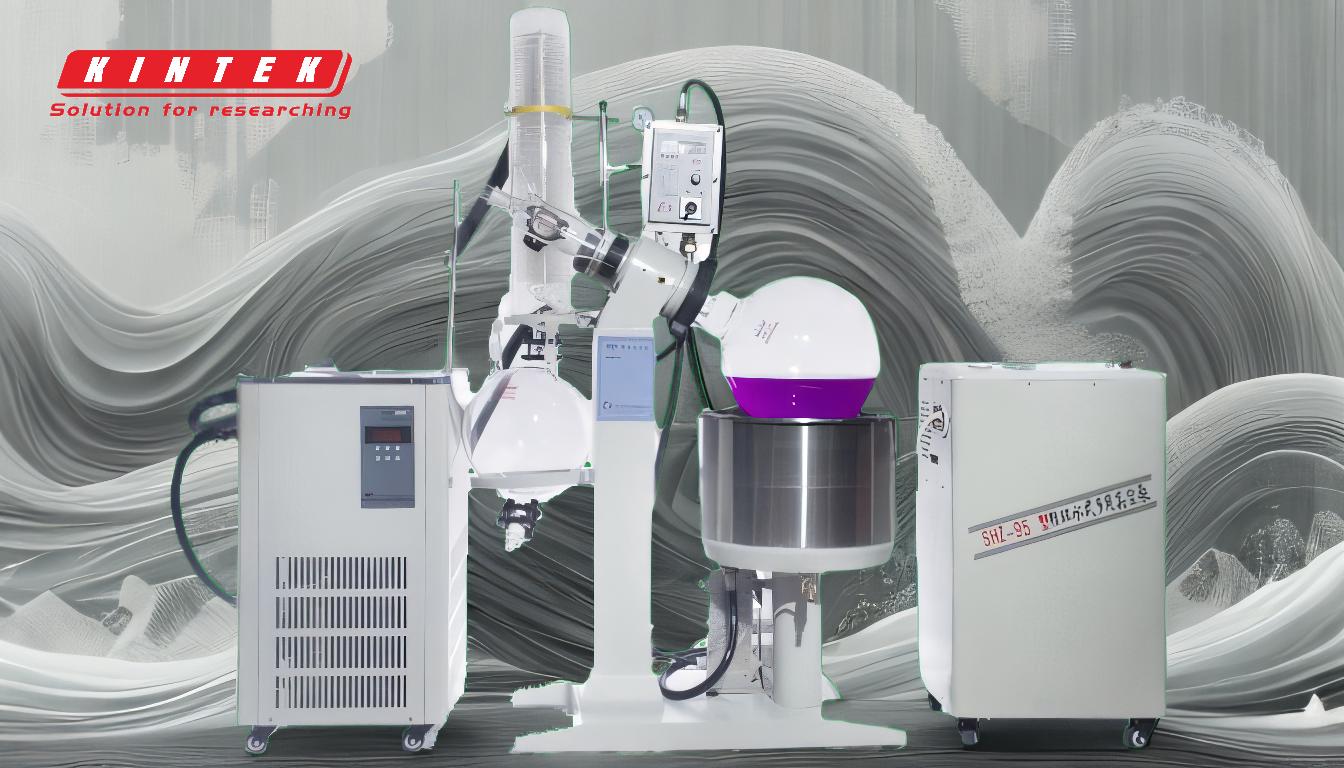Simple distillation is a fundamental separation technique widely used across various industries to purify liquids based on differences in their boiling points. Its applications range from producing high-purity chemicals and pharmaceuticals to refining petroleum and creating essential oils and spirits. The process is particularly valued for its simplicity, cost-effectiveness, and ability to handle heat-sensitive materials. Below, we explore the key industrial applications of simple distillation and its significance in each sector.
Key Points Explained:

-
Petroleum Refining and Petrochemical Industry
- Simple distillation is a cornerstone of petroleum refining, where crude oil is separated into various fractions like gasoline, diesel, and kerosene.
- In petrochemical plants, it is used to purify chemicals derived from petroleum, such as benzene, toluene, and xylene, which are essential for manufacturing plastics, synthetic fibers, and solvents.
- The process is also employed in oil stabilization, reducing the vapor pressure of crude oil to ensure safe storage and transportation.
-
Pharmaceutical and Nutraceutical Industries
- Simple distillation is crucial for producing high-purity active pharmaceutical ingredients (APIs) and intermediates.
- It is used to purify solvents and reagents, ensuring they meet stringent quality standards for drug manufacturing.
- In the nutraceutical sector, it is applied to extract and purify compounds like cannabidiol (CBD) and other bioactive molecules from plant materials.
-
Food and Beverage Industry
- Distillation is widely used to produce alcoholic beverages, such as whiskey, vodka, and rum, by purifying fermented products.
- It is also employed to extract essential oils and flavorings from herbs, spices, and fruits, which are used in perfumes, food flavorings, and aromatherapy products.
- Empirical Spirits, for example, uses distillation to create unique spirits by refining fermented mixtures of Koji, Pilsner Malt, and Belgian Saison Yeast.
-
Water Purification and Desalination
- Simple distillation is a traditional method for producing distilled water, which is free from impurities and used in laboratories, lead-acid batteries, and humidifiers.
- It is also applied in desalination plants to convert seawater into potable water, addressing water scarcity in arid regions.
-
Chemical Synthesis and Air Separation
- In chemical manufacturing, simple distillation is used to purify liquid products obtained from synthesis reactions, ensuring high yields and quality.
- Cryogenic distillation, a specialized form of distillation, is employed to separate air into its primary components—nitrogen, oxygen, and argon—for industrial and medical applications.
-
Fragrance and Essential Oil Production
- The fragrance industry relies on simple distillation to extract aromatic compounds from plants, which are then used in perfumes, cosmetics, and household products.
- Essential oils, valued for their therapeutic properties, are also obtained through this process.
-
Environmental and Waste Management
- Simple distillation is used to recover valuable solvents and chemicals from industrial waste streams, reducing environmental impact and promoting recycling.
- It is also applied in the treatment of contaminated water and the recovery of volatile organic compounds (VOCs).
In summary, simple distillation is a versatile and indispensable technique across multiple industries. Its ability to separate and purify liquids efficiently makes it a critical tool for producing high-quality products, from fuels and pharmaceuticals to beverages and fragrances. Its applications continue to expand as industries seek sustainable and cost-effective solutions for their separation needs.
Summary Table:
| Industry | Applications |
|---|---|
| Petroleum Refining | Separates crude oil into gasoline, diesel, and kerosene; purifies petrochemicals. |
| Pharmaceuticals | Produces high-purity APIs; purifies solvents and reagents for drug manufacturing. |
| Food & Beverage | Creates alcoholic beverages; extracts essential oils and flavorings. |
| Water Purification | Produces distilled water; desalinates seawater for potable use. |
| Chemical Synthesis | Purifies liquid products; separates air components via cryogenic distillation. |
| Fragrance & Essential Oils | Extracts aromatic compounds for perfumes and therapeutic oils. |
| Environmental & Waste Management | Recovers solvents and chemicals; treats contaminated water. |
Learn how simple distillation can optimize your industrial processes—contact us today for expert guidance!









